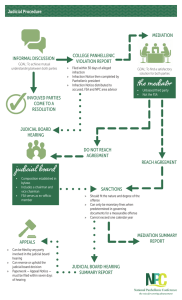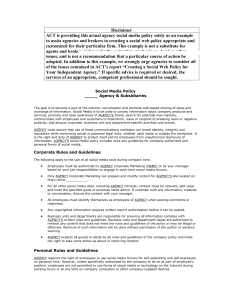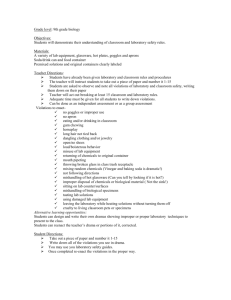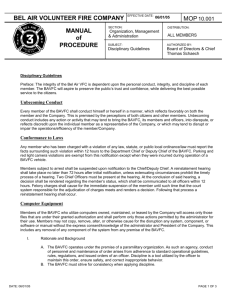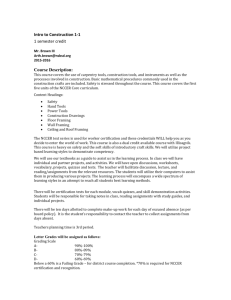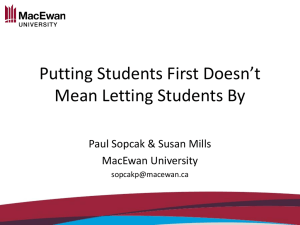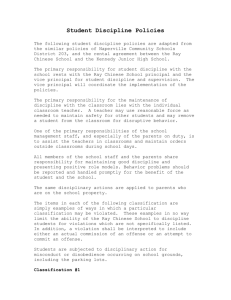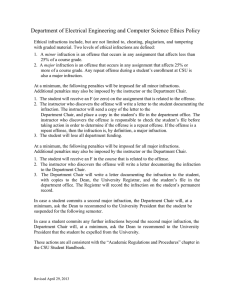Power Point presentation
advertisement
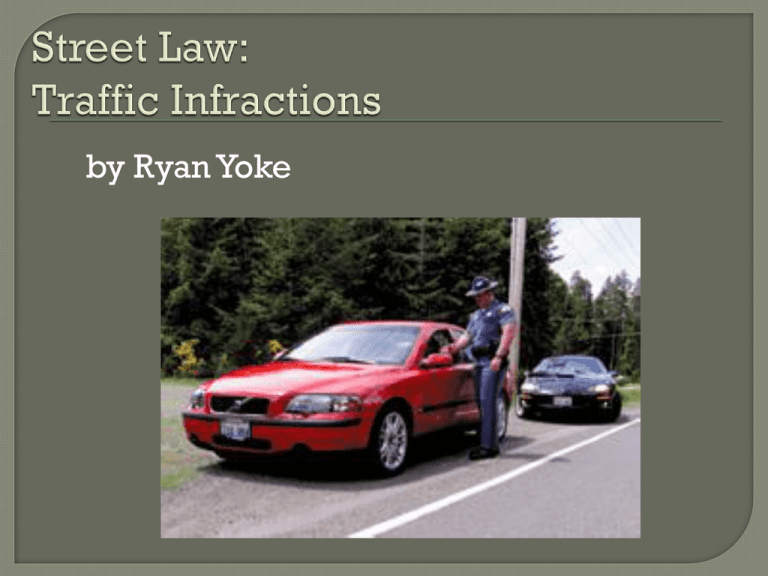
by Ryan Yoke An “efficient” method of traffic enforcement Civil NOT criminal Fines, not jail Can affect insurance A determination that an infraction has been committed Three options: • Pay the fine • Mitigation Hearing • Contested Hearing Fourth Option? • Collection agency • Increased fines • Suspended license • Bench warrant A driver that within a 5 year period receives: • Three traffic related crimes; or • 20 moving violations Traffic related crimes include: • DUI, vehicular assault/homicide, reckless driving, hit & run, or attempting to elude the police Moving violations include: • Speeding, running red lights, tailgating, HOV violations, negligent driving • Full list in WAC 308-104-160 You admit to committing the offense The judge may decrease your fine (judicial discretion; mandatory minimum) Violation goes on your record Often the best choice with non-moving violations You did not commit the offense State has the burden of proof by a preponderance of the evidence If you win, the infraction does not go on your record If you lose, it goes on your record, you pay the fine, and your insurance goes up Hire a lawyer? Read the IRLJ Read the statute your charged with Request discovery Analyze the NOI/Affidavit Subpoena the officer? Check the SMD/speedometer certificates Make a plea bargain with the State? Deferred finding Don’t ignore the ticket! Hire a lawyer if you don’t have the time to prepare adequately Read the statute charged • Know it inside out, the prosecutor will Request discovery Deferred findings are often a good option Break into groups of 3-4 Discuss these three problems What kind of hearing should the defendant request? What other things should the defendant do? RCW 46.61.400: • “…no person shall drive…at a speed in excess of such limits. 25mph in cities and towns 50mph on county roads 60mph on state highways” RCW 46.16A.030: • “Failure to renew an expired registration before operating a vehicle…is a traffic infraction.”


